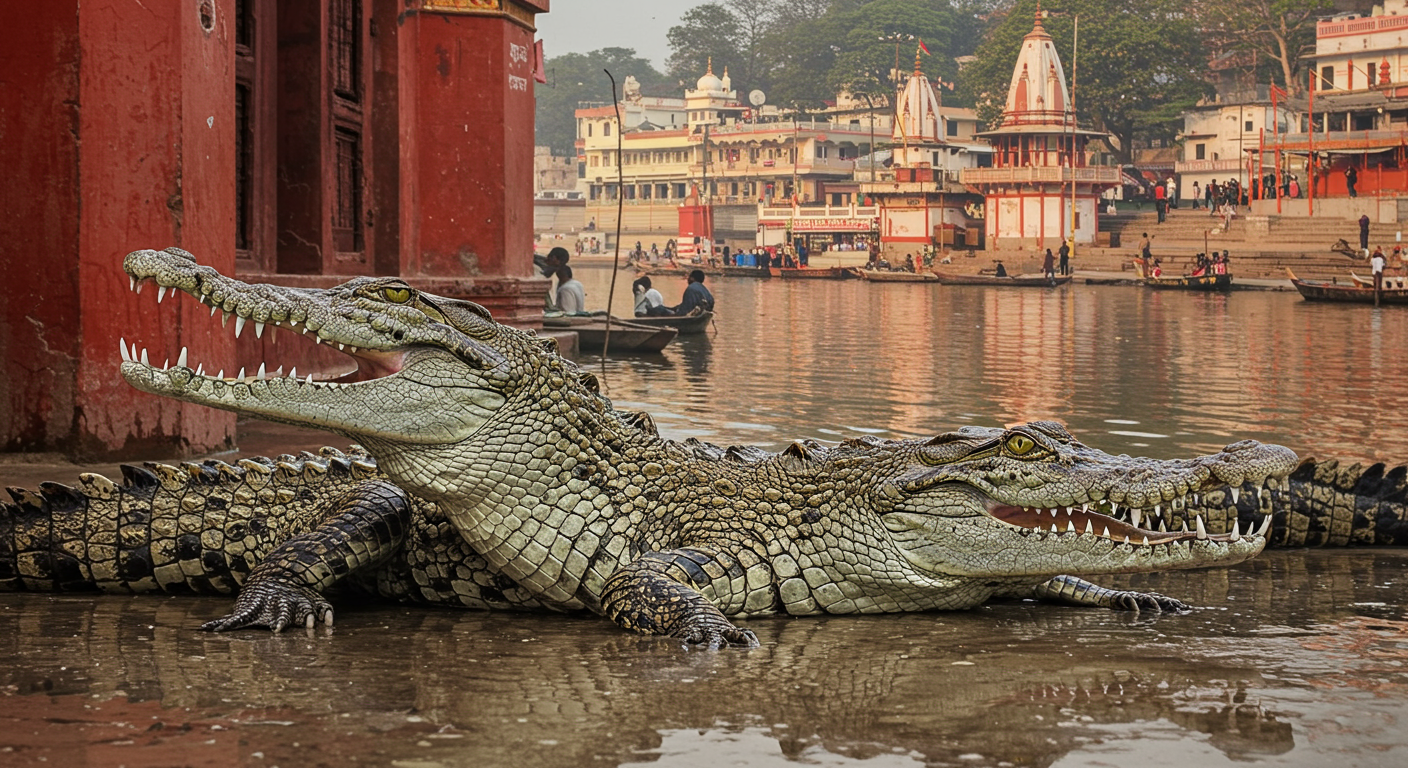
The recent news from Haridwar—forty crocodiles rescued from homes and fields ‘They came from ponds': 40 crocodiles rescued from Haridwar homes and fields—is a powerful, almost unsettling, reminder of our profound entanglement with the natural world. Haridwar, a city deeply embedded in spiritual significance, where the mighty Ganges gracefully descends from the Himalayas to embrace the plains [Ganges - Wikipedia], now finds its residential areas and farmlands hosting these ancient reptiles.
This incident isn't merely about animals straying; it's a stark illustration of the escalating ecological pressures we face. These crocodiles, displaced from their natural ponds, are simply attempting to adapt to a landscape that we humans are ceaselessly reshaping through development, agriculture, and increasingly, by the unpredictable shifts in weather patterns.
This resonates deeply with discussions I have shared in the past, particularly my advocacy for a more centralized and holistic approach to water management. Back in 2016, I emphasized the critical need to make water conservation a central subject in our Constitution and to declare water resources as national assets Parliament panel flags delays in implementing key schemes, highlights JJM, river linking projects, flood forecasting systems. My intention was to foster equitable distribution and unified management. The challenges we continue to witness, like the displacement of these crocodiles, underline how profoundly relevant those insights remain today.
The Ganges, revered as a goddess and a lifeblood to hundreds of millions [Ganges - Wikipedia], is under immense strain. Our infrastructure—barrages, canals, and urban expansion—continuously alters its natural flow and surrounding ecosystems. We build without fully comprehending the ripple effects on its rich biodiversity, which includes species like the gharial and mugger crocodile [Ganges - Wikipedia]. When natural water bodies are impacted by heavy monsoons, or by human-induced changes to the landscape, wildlife is forced to seek new sanctuaries, and sometimes, those are our very homes.
This situation in Haridwar serves as a poignant microcosm of a global challenge: how do we reconcile our drive for progress with the imperative to protect our planet's delicate ecological balance? It is a vivid demonstration of the unforeseen consequences when our planning lacks a comprehensive understanding of human-environment interactions.
I have previously called for concerted action to clean the Ganges, highlighting the failures of initiatives like the Ganga Action Plan, which, despite significant investment, struggled with implementation due to factors such as poor planning, corruption, and a lack of support from religious authorities [Ganges - Wikipedia]. It strikes me how these issues persist, influencing not just human well-being but the very fabric of our ecosystems. The presence of these crocodiles in unexpected places is nature's way of speaking to us, urging us to reconsider our relationship with our environment.
Indeed, I had even proposed innovative solutions for pilgrims to engage with the sacred waters of the Ganges without contributing to its pollution or risking their lives in crowded ghats. My suggestions, such as introducing horizontal escalators, ropeways with hanging chairs, or even roller coasters equipped with Ganga water sprinklers, aimed to combine devotion with modern safety and ecological responsibility. Imagine, a spiritual experience that safeguards both the devotees and the divine river itself Great Show : Will soon become Greatest Show on Earth. This innovative approach would not only keep the Ganga-jal clean but also prevent tragic incidents like stampedes, as I noted in my reflections on the Maha Kumbh Maha Kumbh: Sangam water ‘unsafe’ due to high BOD level, CPCB drops fresh report after faecal bacteria findings.
These recent events in Haridwar are a clear signal that the time for fragmented, reactive measures is long past. We need a unified vision and persistent effort, leveraging technology and thoughtful policy, to address these complex challenges. It's about securing a future where both human and natural life can thrive in harmony.
Regards,
Hemen Parekh
Of course, if you wish, you can debate this topic with my Virtual Avatar at : hemenparekh.ai






No comments:
Post a Comment